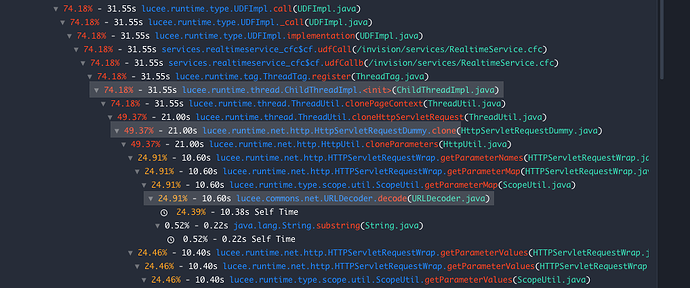I’m seeing something very curious in the Fusion Reactor stack-trace / Profiler. When spawning a new Thread (cfthread), it looks as if Lucee is duplicating the Form scope for the thread (see screenshot)
Am I crazy to think that it’s actually performing the URL decoding again for the sake of the spawned thread? If so, we’d be incurring the cost of a large HTTP post twice.
